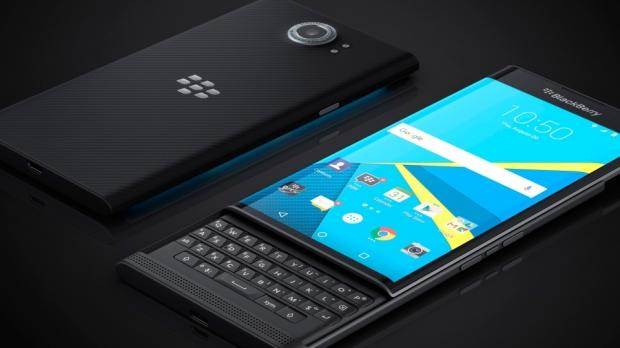Despite its many positive reviews, BlackBerry’s first-ever Android smartphone — the Priv, launched in the U.S. in November — was priced “too steep” for enterprise customers, according to CEO John Chen. So the company plans to release two new mid-range Android phones this year, he said.
Priced starting at $ 699, 600,000 units of the Priv (pictured above) were sold in the fourth quarter of its fiscal year, BlackBerry said at the beginning of this month. That figure was considerably lower than the 850,000 units that had been forecast by analysts.
The two new Android phones planned for this year will include one with a touchscreen and one with a physical keyboard, Chen told Abu Dhabi’s The National newspaper last week. However, he didn’t say when those devices would hit the market.
Two More Releases for BB10 OS
In comments to another Middle Eastern news outlet, the Gulf News last week, Chen said that his company doesn’t plan to release anymore phones based on its own BlackBerry 10 operating system. However, BlackBerry will continue to support the OS for at least two more years, he said.
“We will support BB10 for minimum two more years as a lot of governments are using it, such as Canada, the U.S., Germany and U.K.,” Chen told the Gulf News. “Two more operating releases are coming out — one this year and one by April — and then we will assess.”
BlackBerry’s share of the mobile handset market has steadily dwindled since its sales peaked in 2010. The company’s operating system currently has a global market share of 1.17 percent, lagging far behind the leaders, Android (61 percent) and iOS (32 percent), according to March data from NetMarketShare.
Phone Profit Struggles
According to its latest financial figures, released April 1, BlackBerry’s revenues from software and services have grown, despite its handset struggles.
“Overall, BlackBerry’s Q4 performance was solid as we made progress on the key elements of our strategy, which are to grow software faster than the mobility software market, achieve device profitability and generate positive free cash flow,” Chen said in a statement discussing the company’s fourth quarter results. “We have clearly gained traction and market share in enterprise software.”
Although his company has seen recent improvements in the sales of its phones, Chen told The National last week that BlackBerry would move out of that market if it can’t become profitable in that area. “If I can’t make it profitable because the market won’t let me, then I’ll get out of the handset business,” he told the newspaper.







